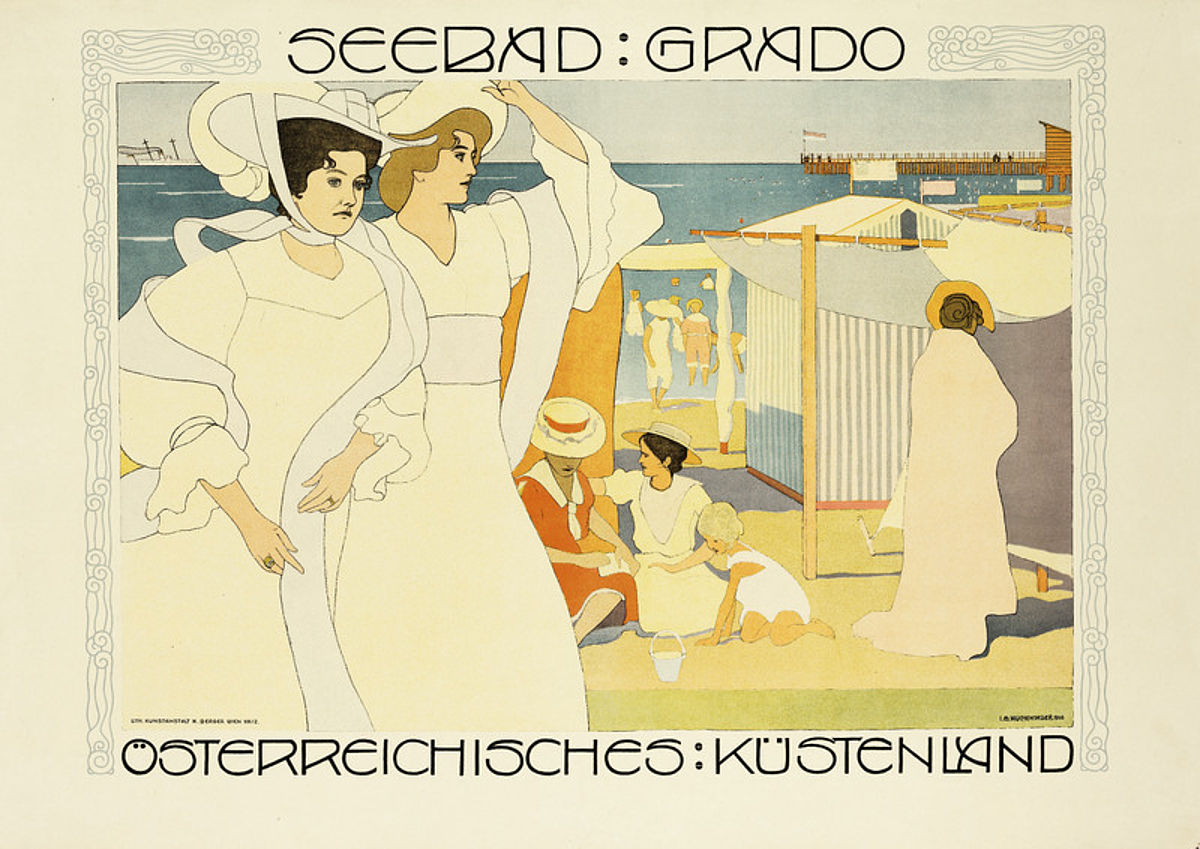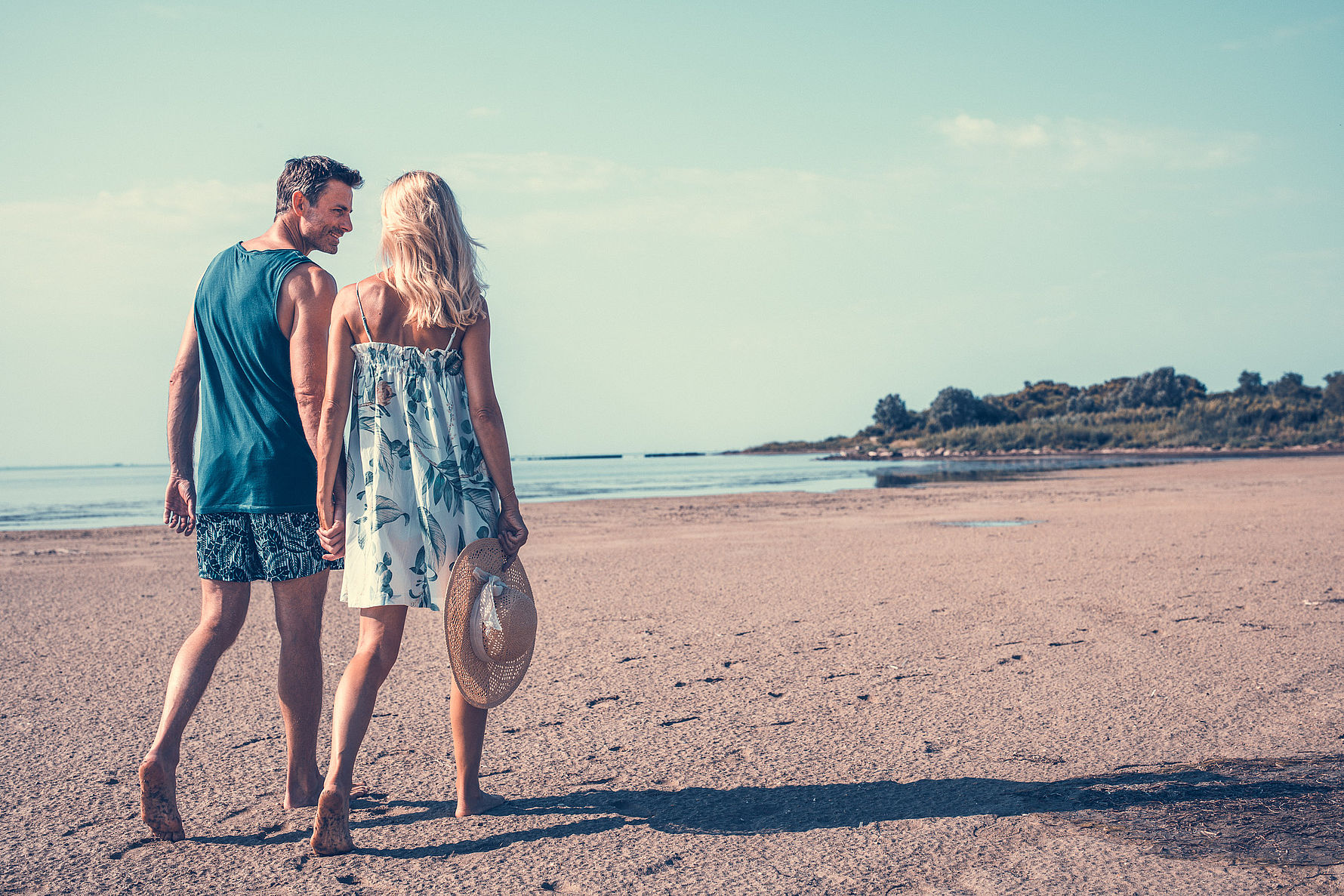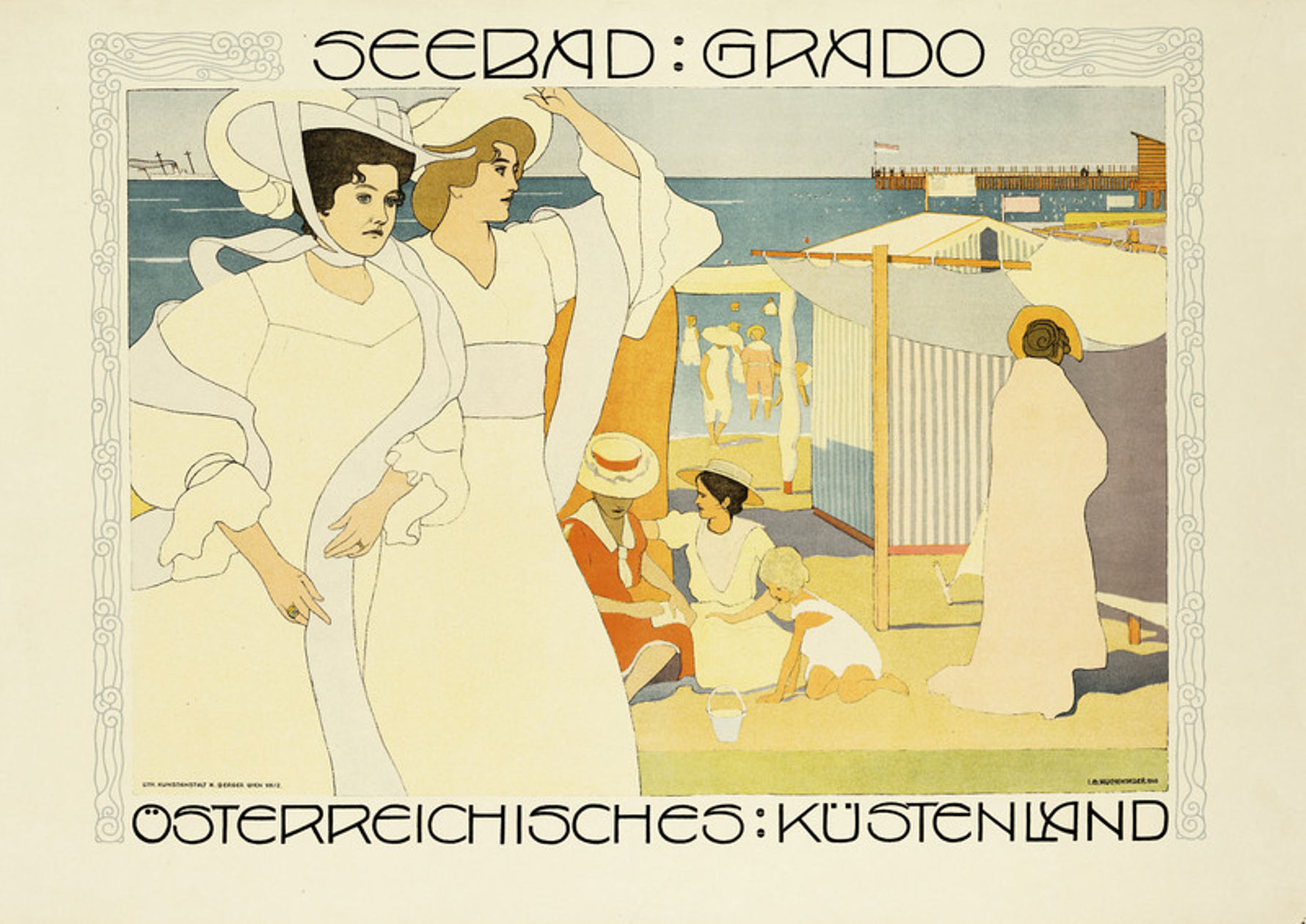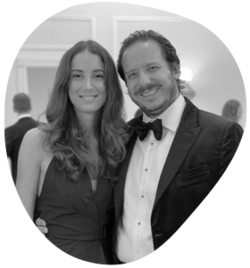16.03.2022
Na Servus! Why the Austrians love Grado.

Why is that, in fact?
The old town of Grado in the golden evening light. Good-humoured people stroll leisurely through the alleys, lapping up an ice cream or taking their fill of the colourful temptations in the shop windows. In the cheerful babble of Italian and German voices, a dialect conspicuously sets the tone: Next door a couple from Graz is talking about the weather and over there a Viennese family is joking about daddy's sunburn. One corner away, a couple from Salzburg is exchanging pet names and next door, Tyrolean is spoken. If you're coming to Grado for the first time, you might still be surprised by the many Austrian holidaymakers. Those who have been to the sunny island more often know, of course, why the inhabitants of the Alpine republic love Grado so much. Because it is beautiful here. But that is only half the truth.

From fishing village to imperial health resort
The people of Grado have always known that their island and the lagoon, the sandy beaches with a lagoon feeling, are something very special. So special, in fact, that in the middle of the 19th century they hatched a plan to build a health resort on the sunny island for well-heeled clientele from the city seeking relaxation. The plan worked and soon the fine gentry from Vienna and Graz and other centres of the Austro-Hungarian monarchy were making pilgrimages to the Upper Adriatic. One must know this: For almost exactly one hundred years Grado was part of the empire, and in 1919 the region was finally awarded to Italy in the peace treaty of St. German. But these hundred years under the flag of the Austrian Emperor have left their mark to this day and made tourism in Grado what it is today. When Emperor Franz Josef conferred the title of imperial spa on the island on 25 June 1892, there was no stopping them: the rich and beautiful, the clever and the artists, the nobility and everyone who was anyone flocked to Grado to experience the legendary effects of the sandy baths, the sea air and the unique microclimate of the island.
An Austrian woman causes a sensation. And so does a poster.
The radiance of an extraordinary couple attracted even more people to Grado at the beginning of the 20th century. Artists, poets, thinkers, in short: the intellectual elite of the Empire followed the call of Emma and Josef Maria Auchentaller. The famous Art Nouveau artist and his wife stirred up Grado in a big way. Emma in particular excelled: as the owner of the Hotel Fortino, a laundry and a small lagoon island complete with farm, she demonstrated her business acumen. Her dances and congresses were obligatory appointments for the upper ten thousand. Her husband Josef Maria Auchentaller, a member of the Vienna Secession, on the other hand, put his reputation as a "decent" artist on the line. In the meantime, he had found his fortune in designing advertising posters for Grado. Speaking of posters: his subject, which shows three ladies in hats and white wale dresses on the beach of Grado, is to this day inseparably linked with the flair of the island and even more than a hundred years after its creation has played a decisive role in the attraction of the sunny island.

Childhood memories and the longing for more sea.
The Austrian Empire is, of course, history. But it is far from forgotten. If you look closely, you will discover the traces of this time and its people again and again as you stroll through Grado. Now the only question that remains is: why do Austrians still come to Grado in such large numbers and with such pleasure? It almost seems as if the longing for this place is in the DNA and is passed on generation after generation. There is a bit of truth in this fantasy. When, in the years of the economic miracle, travel became affordable even for working-class families, there was hardly anything more obvious than coming to Grado. In the truest sense of the word. Because Grado is - next to Lignano - the nearest seaside resort on the Adriatic from Austria. And because it is in the nature of us humans to seek happiness in repetition, the third, fourth and even fifth generation in a row is already holidaying on the sunny island. It is probably the longing for the feeling of freedom of one's own childhood days by the sea, the nostalgic recollection of a time when life was so light and airy, always combined with the longing to catch a little piece of this past happiness in the here and now. And when we look at the faces of our (Austrian) guests, this seems to work pretty well in Grado. One more thing, and we hope our Austrian friends understand these lines with a wink: sometimes we feel something like regret that Austria has lost Grado and thus its own sea. But don't worry, you are always welcome here with all our hearts. Because Grado would not be what it is today without you Austrians.

